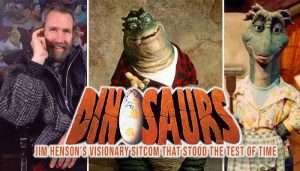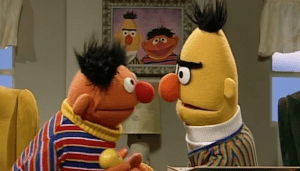When it comes to classic television shows, few have had the enduring charm and impact of The Muppet Show. Among its iconic cast of characters, Scooter stands out as a lovable and instantly recognizable figure. With his unmistakable orange skin, round glasses, and an enthusiastic personality, Scooter has captured the hearts of fans for decades. This blog post will delve into the history of Scooter, exploring his character traits, his role within the Muppet universe, and the legacy he has left in the world of puppetry and entertainment.
The Birth of Scooter

Scooter made his debut in the 1976 premiere of The Muppet Show. Created by the legendary Jim Henson, Scooter was designed to be a backstage assistant and a stage manager for the chaotic production that was the heart of the show. He was originally performed by the talented Richard Hunt, one of Henson’s key puppeteers. Hunt’s portrayal of Scooter was characterized by a high-pitched voice and an endearing, earnest approach that quickly endeared him to audiences.
Scooter’s character was primarily designed to reflect the absurdity and disorganization that often accompanies theatrical productions. He served a dual purpose: as a voice of reason amidst the chaos and as a conduit through which the eccentric personalities of the Muppets could shine. With his clipboard in one hand and a clipboard in the other, Scooter tirelessly tried to keep the show running smoothly, often to comedic and chaotic effect.
A Multifaceted Character
One of the most interesting aspects of Scooter is that he embodies various archetypes. On one hand, he is the quintessential go-getter with an endless supply of energy and enthusiasm, ever eager to please the Muppet cast. On the other hand, he often finds himself overwhelmed by the sheer madness of his surroundings. This duality resonates with viewers, who can easily relate to Scooter’s struggles as he juggles innumerable tasks and personalities.
Historically, Scooter was portrayed as an everyman character within the Muppet universe. Many viewers found parallels between Scooter’s experiences and their own lives; juggling jobs, family, and social expectations. He’s the underdog—a character who is often overshadowed by the flamboyance of others, yet who perseveres and holds the show together.
The Role of Scooter in The Muppet Show
Throughout The Muppet Show, Scooter’s role evolved from simply being a stage manager to a central part of the ensemble cast. He often found himself in humorous situations, frequently interacting with other characters like Kermit the Frog, Miss Piggy, and Fozzie Bear. His rapport with Kermit, in particular, showcased a blend of admiration and frustration, making Scooter a relatable figure for viewers who have experienced the trials of working with more dominant personalities.
Scooter also played host to several memorable moments, sometimes stealing the spotlight from more prominent characters. In episodes featuring celebrity guests, Scooter would often take on various roles, showcasing his versatility. His comedic timing and interactions with the celebrity guests added another layer of humor to the show, allowing him to shine even when he wasn’t the primary focus.
A Legacy Beyond The Muppet Show
After The Muppet Show, Scooter transitioned into a range of other Muppet productions, including films such as The Muppet Movie (1979), where he continued to solidify his place in the Muppet legacy. The Muppets ventured into a new world with sequels and spin-offs, but Scooter remained a constant presence, embodying the spirit of camaraderie and chaos that defined the Muppet brand.
In the 1990s, Scooter was part of Muppets Tonight, a more modern iteration of the Muppet franchise. Although Richard Hunt had passed away in 1992, Scooter’s character was taken up by puppeteer Dave Goelz, who has portrayed several other Muppets, including Gonzo. This transition was a testament to the resilience of the Muppet legacy, allowing Scooter to continue entertaining new generations.
Scooter also appears in various Muppet specials, television episodes, and merchandise, including toys and apparel. His image has become synonymous with the Muppet brand, serving as a figure representing the creativity and imagination that Jim Henson and his team infused into their work.
Representing the Spirit of Muppet Culture
As much as Scooter is a character within the Muppet universe, he also symbolizes the collaborative spirit that Jim Henson and his team embodied. In many ways, Scooter represents the unsung heroes of the entertainment world—those who work tirelessly behind the scenes to ensure that the show goes on. With his optimistic outlook and can-do attitude, Scooter encourages viewers to appreciate the hard work that goes into any performance or production.
Scooter’s character illuminates a vital lesson about teamwork, dedication, and the importance of finding joy even in chaotic circumstances. His perpetual optimism and resilience remind audiences of the value of hard work and the power of humor in overcoming life’s challenges.
Conclusion
Scooter may not be the first name that comes to mind when people think of The Muppet Show, but his impact is undeniable. The character embodies the heart and humor of the Muppet franchise, making him an essential part of its rich tapestry. From his origins as a stage manager to his numerous appearances across Muppet productions, Scooter remains a beloved character whose charm resonates with fans of all ages.
As we continue to celebrate the legacy of Jim Henson and his imaginative creations, let’s take a moment to appreciate Scooter. He is a reminder that even in the midst of chaos, there is always room for laughter, teamwork, and a little bit of fun. Whether you’re a long-time fan or new to the Muppet phenomenon, Scooter’s journey is one worth celebrating, and his spirit continues to thrive in the hearts of Muppet enthusiasts around the world.



